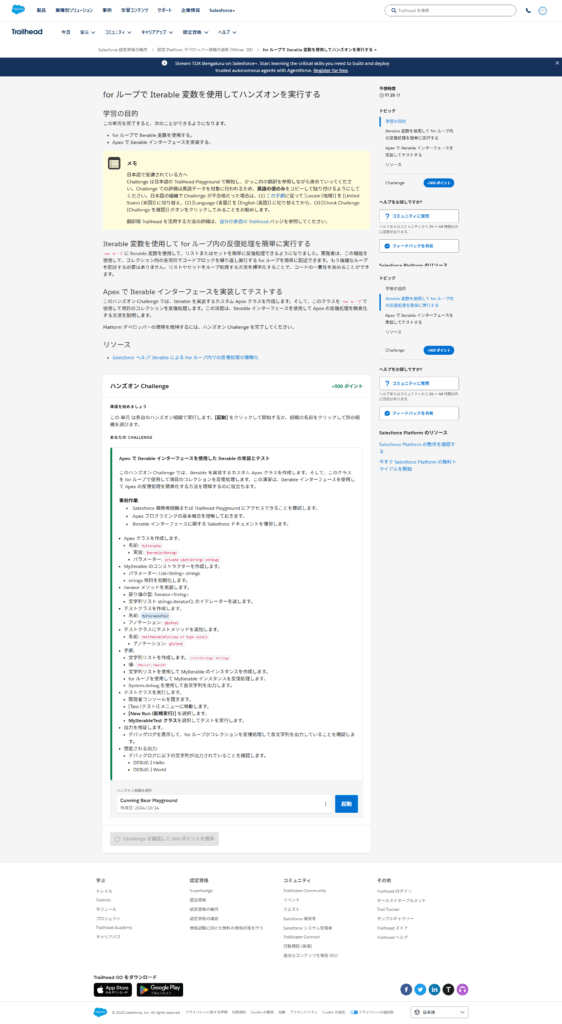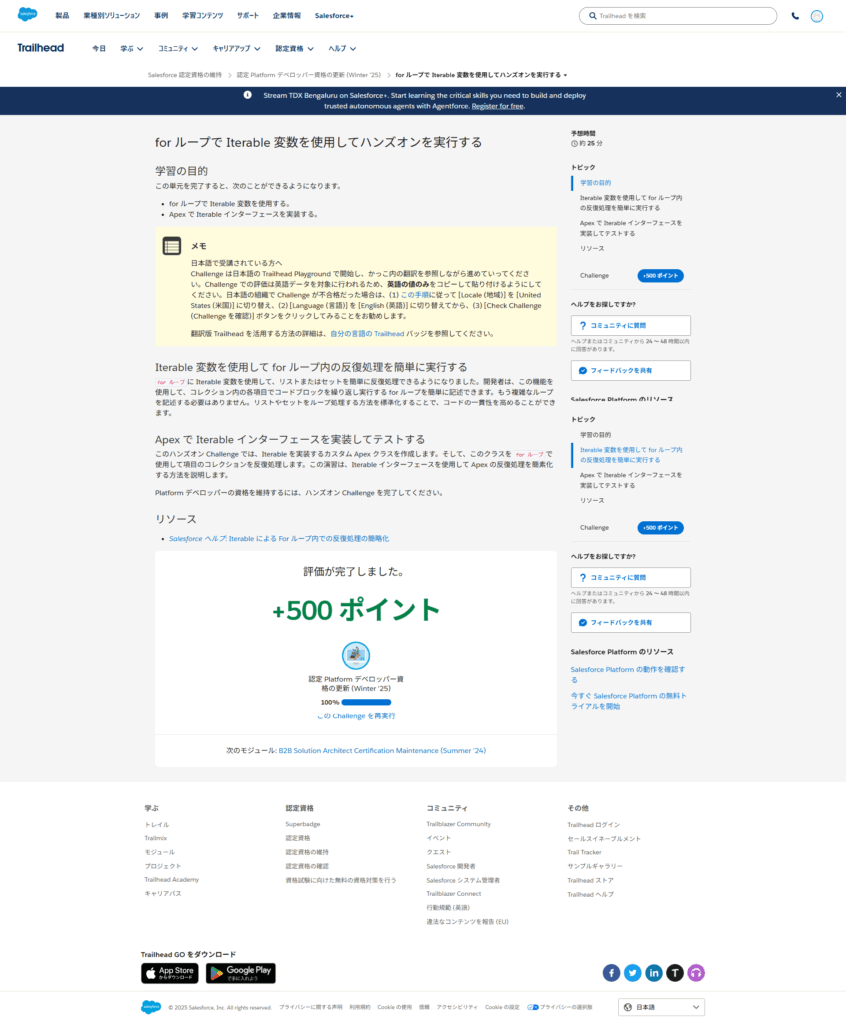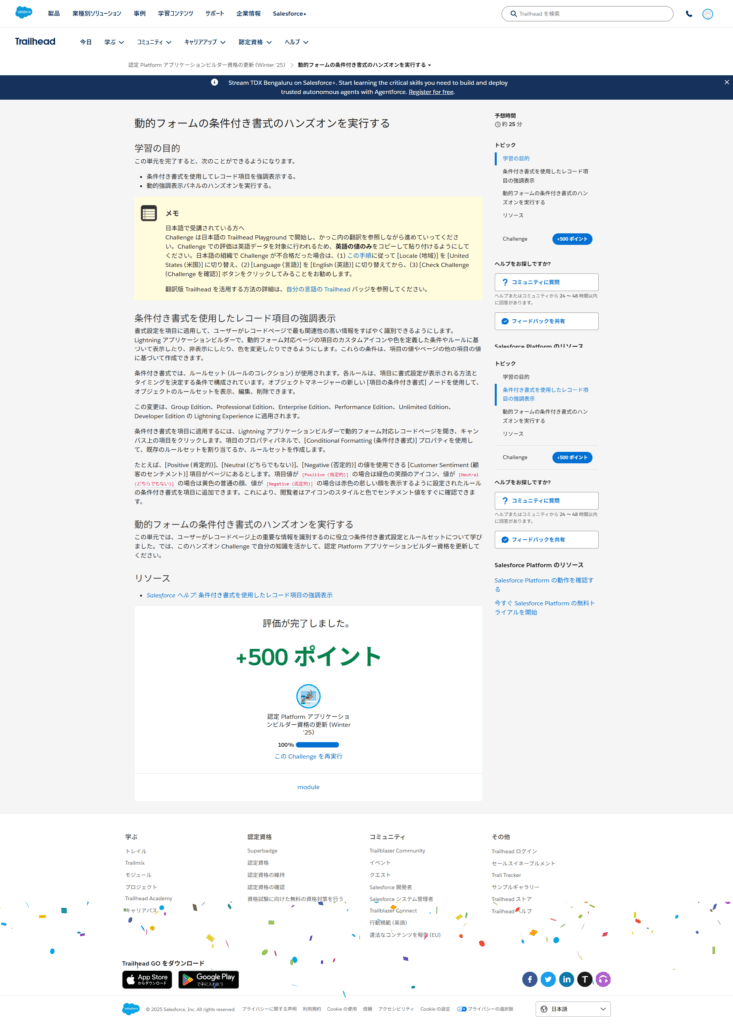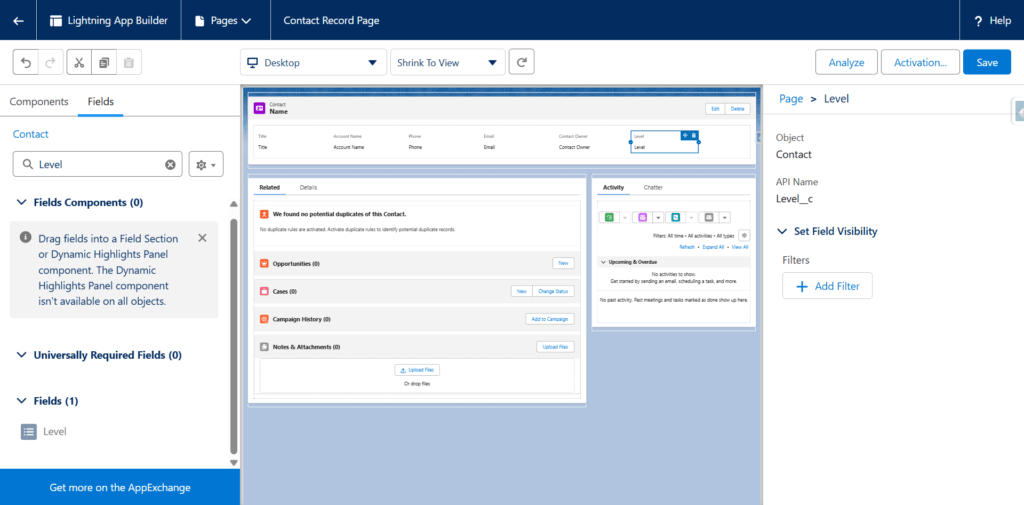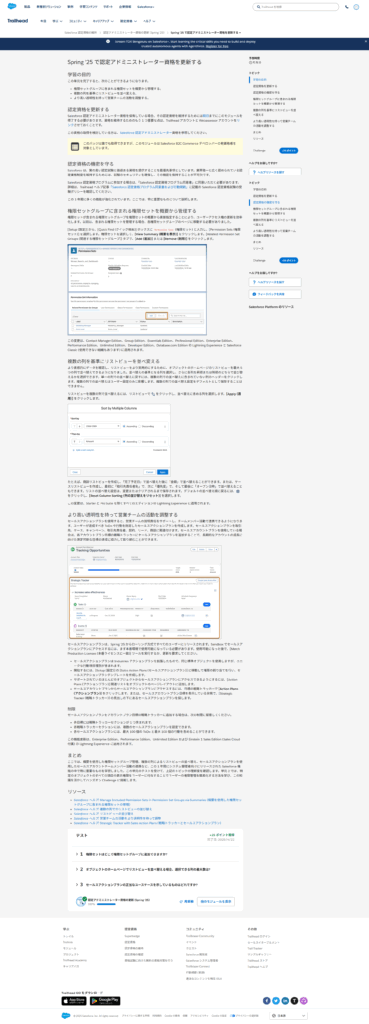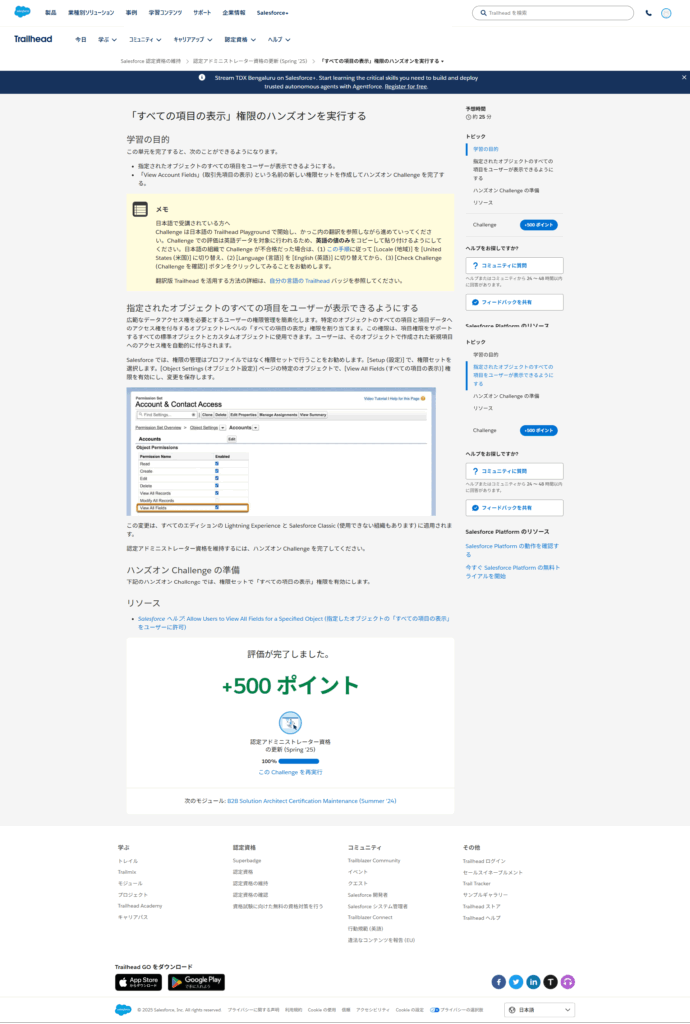Apex ジョブのスケジュール
同時に使用できる有効なジョブまたはスケジュール済みジョブの数は 100 件です。
- [設定] から、[クイック検索] ボックスに「Apex クラス」と入力し、[Apex クラス] を選択して、[Apex をスケジュール] をクリックします。
- スケジュールを設定するクラスの名前を指定します。
- [Schedule Builder] または [Cron Expression] を選択して Apex ジョブをスケジュールします。
- スケジュールビルダーを選択した場合:
- Apex クラスを実行する頻度を指定します。
- [毎週] の場合、ジョブを実行する曜日を 1 つ以上指定します ([月曜] と [水曜] など)。
- [毎月] の場合、ジョブを実行する日付または曜日 (毎月第 2 土曜など) を指定します。Apex のスケジュール済みクラスの開始日と終了日を指定します。日付を 1 つ指定した場合は、ジョブは 1 回のみ実行されます。
- 希望開始時刻を指定します。ジョブが開始する正確な時刻は、サービスの可用性によって異なります。
- Apex クラスを実行する頻度を指定します。
- [Cron Expression] を選択した場合は、cron 式を使用して時間を指定し、設定した時間にクラスを実行するようにスケジュールします。
- [保存] をクリックします。

